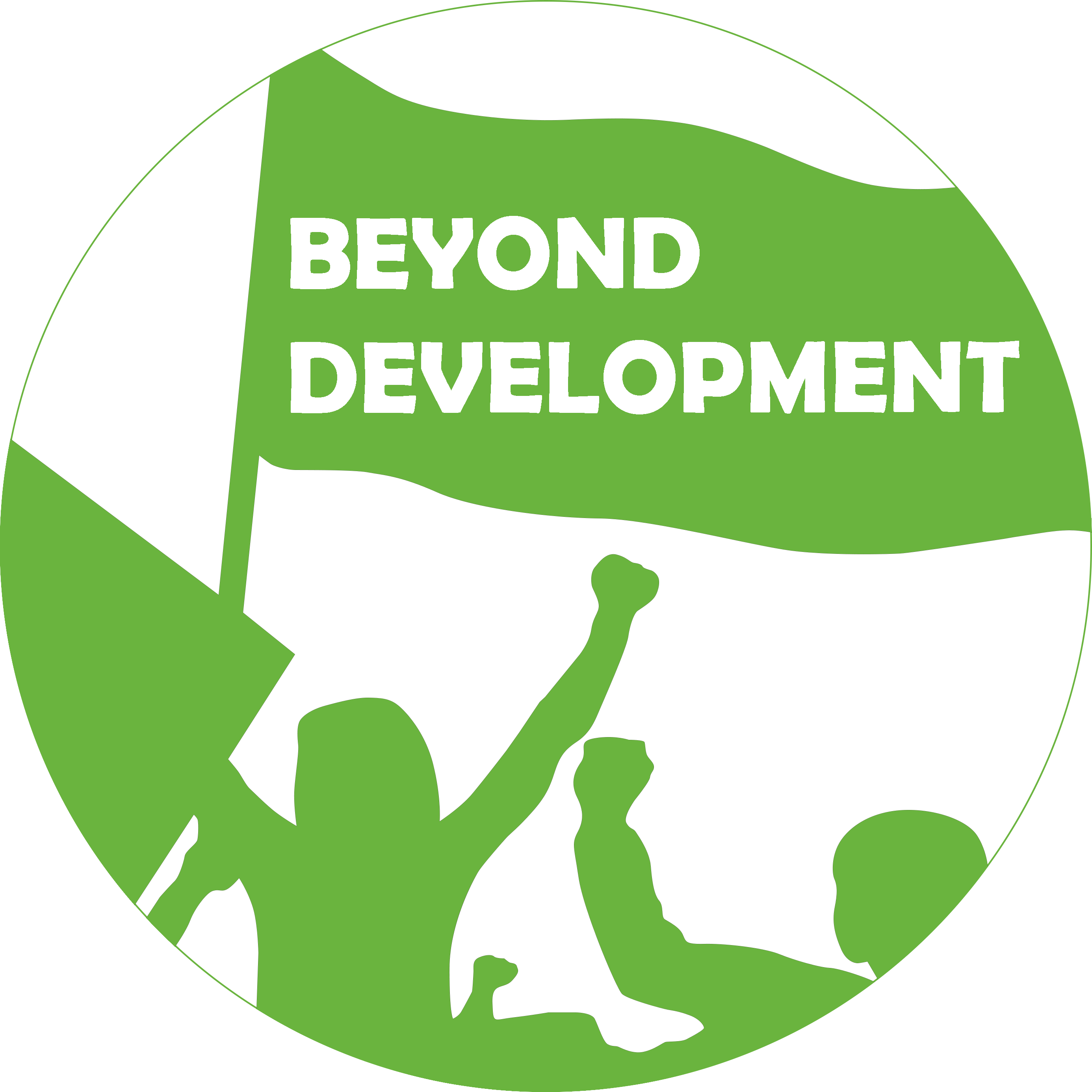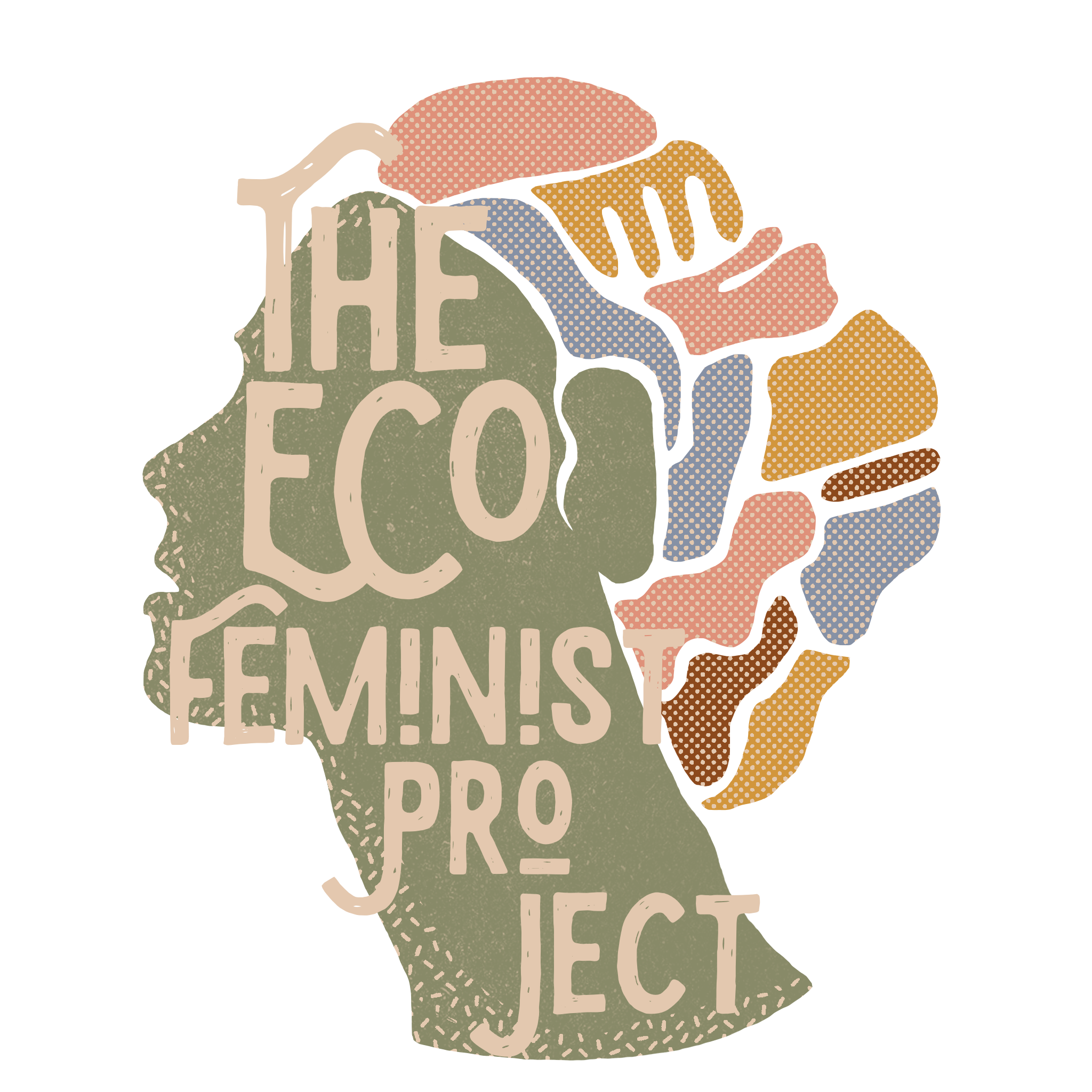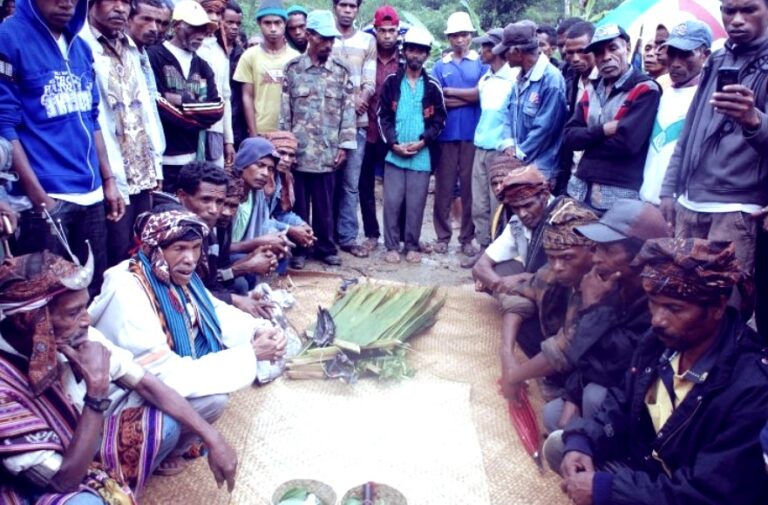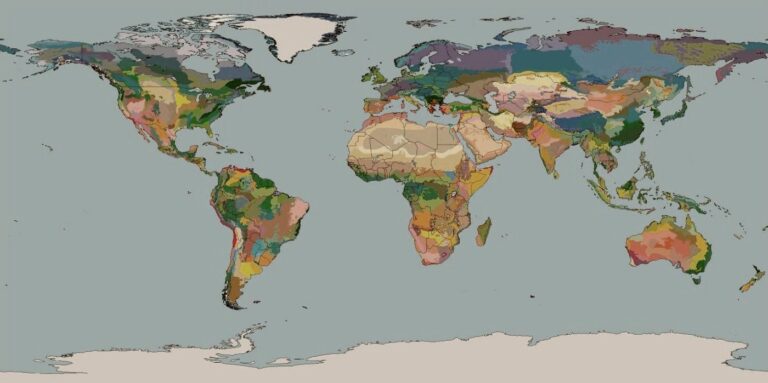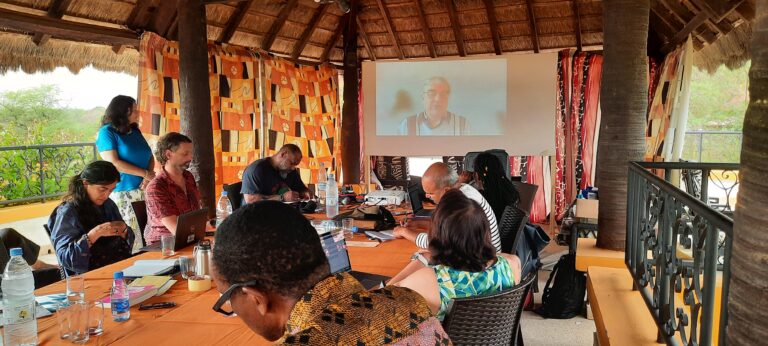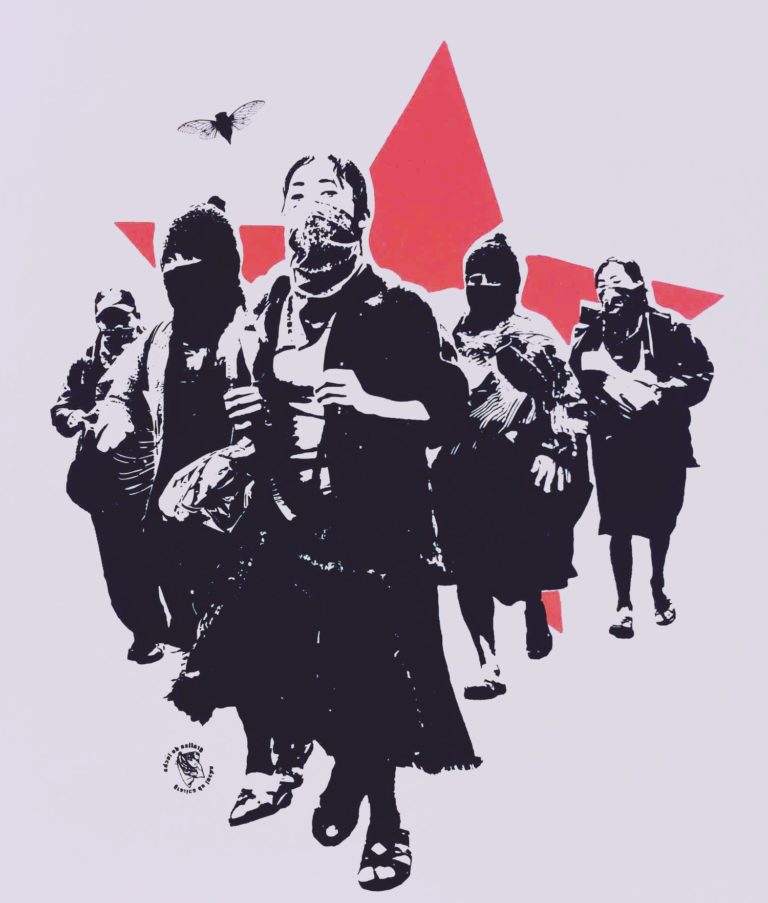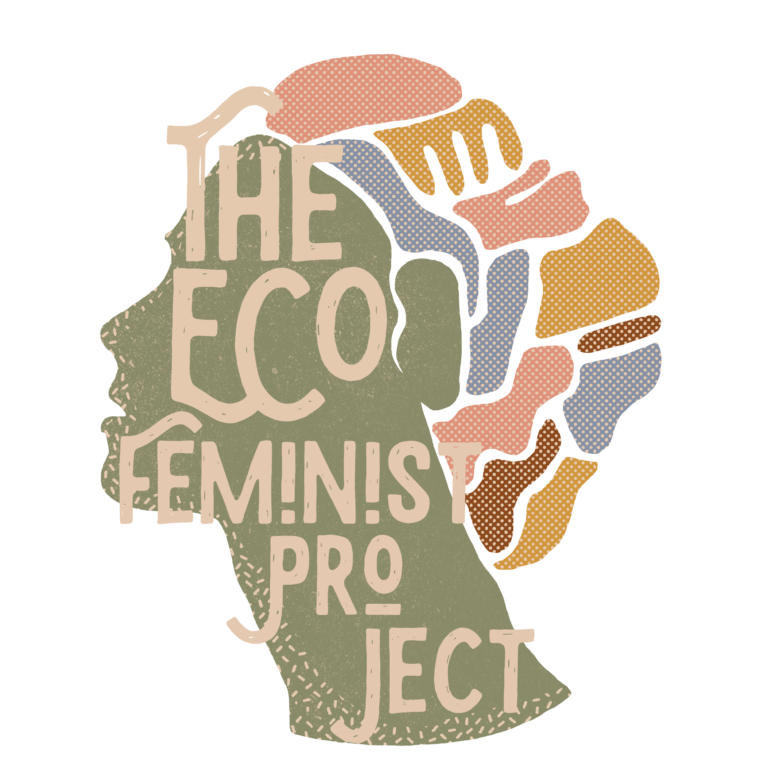This interview follows a 2020 workshop on approaches to a ‘just transition’, held at the Institute for Global Development (IGD), University of New South Wales, Australia. Somali Cerise, IGD Research to Practice Associate asks Ariel Salleh to share ecofeminist ideas on redefining the relationship between humans and the environment and what a different system of power and economic relationships might look like[1].
IGD: At our workshop on Gender and Just Transitions you emphasised that a just transition requires fundamentally rethinking the relationship between human beings and nature. This means we stop seeing the environment as there simply to serve human interests, and instead, view humans as just one part of the ecosystem. Can you elaborate on why we must move from the West’s anthropocentric dualism of ‘Humanity over Nature’ to achieve a gender just transition?
AS: A broad public understanding that the global economy is ‘anthropocentric’ is critical to the survival of Life on Earth. Crises like climate change, biodiversity loss, and the 2020 pandemic, are each outcome of the dominant Eurocentric imaginary that positions Humanity over Nature. This dualist H/N assumption, derived from ancient Abrahamic religious cultures, was secularised by the European Enlightenment and scientific revolution. Modern science shifted from seeing nature as a living organism to a view of nature as a ‘machine’ that could be designed and improved by men. The dualist logic of Humanity over Nature also implied Subject over Object, Mental over Manual, Production over Reproduction, Man over Woman, White over Black. This life-alienated patriarchal ideology is closely tied into Eurocentric masculinist identities and indispensable to capitalism. It is not only women who are conventionally treated as ‘closer to nature than men’, but indigenous peoples, and children. This subconscious hierarchy of capability, entitlement, and power infuse everyday talk and political decision-making.
Most governments and multilateral agencies are now taking the global environment crisis seriously – the Anthropocene conversation is a marker of that. Yet the very term Anthropocene is part of the problem since like the mainstream international discourse, it too is anthropocentric. Academic disciplines say economics or Western legal constructs, are premised on the super-ordination of Humanity over Nature. But the anthropocentric lens blurs the fact that the choices, decisions, and actions of subjected populations – most women and colonised peoples around the world – have not been responsible for damaging the planetary system.
As an empirical fact, all humans are Nature; simply ‘nature-in-embodied form’. People involved in the labour of nurturing young bodies or growing their own food, know this very well. So it was, that 5 decades ago, women opposing polluted urban neighbourhoods in the global North or local deforestation in the global South, came to recognise the destructive arrogance of the dualist logic and its instrumental rationality. Working with natural processes means facilitating living metabolic transfers, so discovering complex skills and the need for a precautionary ethic[2]. From this vantage point, social and ecological crises clearly reflect competitive attitudes, embedded in the sex-gendered political economy of international institutions.
The politics and theoretical literature of Ecological Feminism developed from this insight. Ecofeminists also noted how in capitalist patriarchal societies, the resourcing and commodification of nature, occurred in parallel to the resourcing and commodification of their own generative reproductive bodies. The latter exploitation can be seen today in the existence of two parallel paradigms Public over Private: an individualistic monetised economy (ME), and a non-monetised relational economy (WE). The domestic WE economy materially maintains the ME economy but is generally treated as a ‘natural’ activity.
IGD: What does ecofeminism propose as an alternative to the dualism of ‘Humanity over Nature’? What would be some positive examples that we can learn from?
AS: Ecofeminist activism for Life on Earth responds to the interconnected injustices of neoliberalism, militarism, corporate capture of science, worker alienation, reproductive technologies, sex tourism, child molestation, neo-colonialism, extractivism, nuclear weapons, land and water grabs, deforestation, animal cruelty, genetic engineering, climate change, and the Eurocentric mythology of progress.
At its deepest level, ecofeminist thinking is an alternative epistemology, a way of knowing quite distinct from the capitalist patriarchal manipulation of people and nature. Yet it would be masculinist ideological nonsense to attribute women’s political insights to some inborn ‘feminine essence’. The source of ecofeminist judgments is neither biological embodiment nor cultural mores, although these will influence what is perceived. Rather, the source of an ecofeminist epistemology is labour, as people discover understandings and skills through intentional interactions with the material world. People like care givers, farmers, gatherers, are in touch with all their sensory capacities, so able to construct accurate and resonant models of how one-thing-joins-to- another.
Most women as caregivers have been historically positioned as labour right at the ontological margin where so-called Humanity and Nature meet. Unlike factory or clerical workers, culturally diverse groupings of women oversee biological flows and sustain matter/energy exchanges in nature. In fact, the entire thermodynamic base of capitalism rests on material transactions mediated by the labour of this unspoken ‘meta-industrial class’. Day by day, the global economic system is accruing a vast unacknowledged debt to these workers. In recent decades, women caregivers in the global North and colonised communities in the South have come together in a political ‘movement of movements’ charged by the knowledge that emancipation and sustainability are interlocking goals. The unique rationality of their meta-industrial labour is a capacity for economic provisioning without externalities – that is to say, without passing on a social debt to others or forcing natural processes into degradation and entropy.
– In Ecuador, women of Accion Ecologica www.accionecologica.org invented a concept of ‘ecological debt’ to describe the 500-year colonial theft of natural resources from their land; the ongoing modern theft of World Bank interest on development loans.
– In the USA, Code Pink activists work tirelessly for world peace; others focus on ending cruelty to animals.
– In Africa, women whose livelihoods are threatened by mining near their village homes have established WoMin www.womin.org.za a continental anti-extractivist network with its own ecofeminist manifesto on climate change presented to COP25 in Paris.
– In China, village women are refusing to use industrial fertilisers and pesticides, choosing to restore soil fertility by reviving centuries-old organic technologies, then modelling communal food sovereignty.
– In India, the Navdanya www.navdanya.org network organises schools for eco- sufficiency and ‘banks’ traditional seeds to save them from bio-piracy and corporate patenting by Big Pharma.
– In Australia, suburban housewives known as MADGE actively oppose genetically engineered foods.
– In France, young women and men are pioneering economic degrowth and rebuilding vibrant communities around permaculture.
IGD: What are the roles of different actors, for example, governments and social movements, in achieving this shift?
AS: At Rio+20 the business sector, politicians, World Bank, and UNEP stepped up with a Green New Deal proposition. This was later exposed as a public relations exercise for an emerging nanotech-based bio-economy. The capitalist patriarchal method of protecting Nature is to commodify ‘ecosystem services’, subsuming the living metabolic flows of forests, sunlight, or ground bacteria, under a pricing mechanism. Similarly, the International Monetary Fund and others advance a Green Economy built on free-market ideology. But intellectually, decision making by world leaders relies on a thoroughly confusing vocabulary of ‘financial capital’, ‘human capital’, ‘natural capital’, and ‘physical capital’.
Many well-meaning citizens in both global North and South believe technology transfer and digitisation is necessary to achieve ‘a just transition’ to sustainability. The preferred and tacitly masculinist response to the crises of globalisation is innovation. It is claimed that new technological efficiencies can de-materialise the number of resources used by industry. However, automated production does not avoid displacing self-sufficient rural communities for mineral extraction, nor does it avoid heavy energy drawdowns for manufacture. The said engineering ‘optimisation’ of material throughput rarely factors in all the relevant operational aspects of mining, smelting, manufacture, communications, transport, and waste disposal. When fully researched, ‘ecological modernist’ expectations of progress do not hold up.
UN agencies operating under the Eurocentric liberal political discourse tacitly sanitise environmental, decolonial, or sex-gender matters by departmentalising them as separate ‘single issues’. This piecemeal problem-solving policy inadvertently disguises existing, often intersectional, power relations because it stops people ‘joining the dots’. For sure, microloans are offered to poor Bangladeshi women, but this is hardly liberating. If thinkers at the UN are guided by liberalism, and people are processed through an anthropocentric divide and rule as ‘stakeholders’, progress towards ‘a gender just transition’ will be very slow. To paraphrase veteran Caribbean feminist Peggy Antrobus as she contrasted the Women’s Beijing Plan of Action with the UN Millennium Development Goals: MDGs = Most Distracting Gimmicks[3]!
IGD: What would a different system of power and economic relationships look like?
AS: The global economy already overshoots planetary capacities by 50% every year and the UN Sustainable Development Goals do not remedy that. Additionally, it is estimated by an anthropologist at the London School of Economics that it will take 207 years to eliminate poverty using the SDGs[4]. Again, the World Bank and UN SDGs promote privatised management of water supply. But since markets can only increase the value of a commodity by making it scarce, this method of water protection is a contradiction in terms. Similarly, environmental solutions like carbon trading, geo-engineering or climate-smart agriculture will not restore nature’s life-support systems once these are broken.
For the small producers, landless rural women, indigenes, youth, and farmworkers of the international peasant union Via Campesina, the Green Economy is just another structural adjustment program realigning national markets.
In response to imposts such as these, a global ‘movement of movements’ began to form after the 1999 Battle for Seattle against the World Trade Organization. This broad people’s alliance held its first World Social Forum in 2001 – and two decades later, WSF now remodelling itself, still believes Another Future is Possible! On the streets of Davos outside the World Economic Forum and at UN COP negotiations, activists are pursuing a tapestry of alternatives based on political subsidiarity and eco-sufficient bioregional commoning.
More recently, academics have met in Barcelona, Leipzig, and Budapest to discuss degrowth. The Rosa Luxemburg Stiftung is also working on Socio-Ecological Transformation. Yet in both North and South, among elites and movement cadres alike, there is a need for ‘capacity building’ to include sex-gender consciousness-raising. It is time to hear women’s critique of the anthropocentric imaginary and its anti-Nature institutions. Ecofeminists are well qualified here since they are not ambitious for an equal piece of the toxic pie. Earlier feminisms, liberal and socialist, had anthropocentric framing, whereas ecofeminism, born in the environmental struggle was oriented to oikos from the start. As such, it was immediately transnational, cross-cultural, and decolonial in focus. The ecofeminist subsistence model complements and deepens European moves towards degrowth, South America’s buen vivir, India’s swaraj communities, the South African ethic of ubuntu, Oceania’s Kastom Ekonomi, and the goals of Via Campesina[5].
A deep sociological divide exists between the anthropocentric culture of business, governments, multilateral agencies, and transnational technocrats versus those whose livelihoods are destroyed by industrialising development models, inconsistent climate policy, militarised resource grabs; and closer to home, by domestic violence. If Life on Earth has a future, it inheres in disarmament and degrowth – a regenerative ethic.
[1] An early version of ‘A Regenerative Ethic for a Gender Just Transition’, Institute for Global Development Magazine, 28 January 2021 <https://www.igd.unsw.edu.au/ourinitiatives/equity- social-justice/gender-and-just-transitions>. Ariel Salleh is a Visiting Professor in the Faculty of Humanities, Nelson Mandela University, South Africa, a former Senior Fellow in Post-Growth Societies, Friedrich Schiller University Jena, Germany and Honorary Associate Professor in Political Economy, University of Sydney. She taught in Social Ecology at the University of Western Sydney for several years; and has lectured widely, including New York, Toronto, and Beijing. A long-time activist, she co-founded the Movement Against Uranium Mining; The Greens (reg. party); served on the Federal Government’s Gene Technology Ethics Committee, and was a governor of the International Sociological Association Research Committee for Environment & Society. She writes in the field of political ecology, extending the remit of political economy by focusing on the role of reproductive or meta-industrial labour in sustaining relations between humans and nature. She has three books – Ecofeminism as Politics; the anthology Eco Sufficiency and Global Justice; and Pluriverse: A Post-Development Dictionary edited with Kothari et al. as well as some 200 chapters and articles. Her work can be found at www.arielsalleh.info.
[2] Ariel Salleh, ‘Ecofeminism’ in Clive Spash (ed.), Routledge Handbook of Ecological Economics. Oxford & New York: Routledge, 2017, pp. 48-56.
[3] Gigi Francisco and Peggy Antrobus, ‘Mainstreaming Trade and Development Goals’ in Ariel Salleh
(ed.), Eco-Sufficiency and Global Justice: Women Write Political Ecology. London: Pluto Press,
2009, pp. 157-164.
[4] Jason Hickel, ‘The problem with saving the world’, Jacobin Magazine, 8 August 2015.
[5] Ashish Kothari, Ariel Salleh, Arturo Escobar, Federico Demaria, Alberto Acosta (eds.), Pluriverse: A Post-Development Dictionary. New York: Columbia University Press & New Delhi: Tulika/AuthordsUpFront, 2019.
